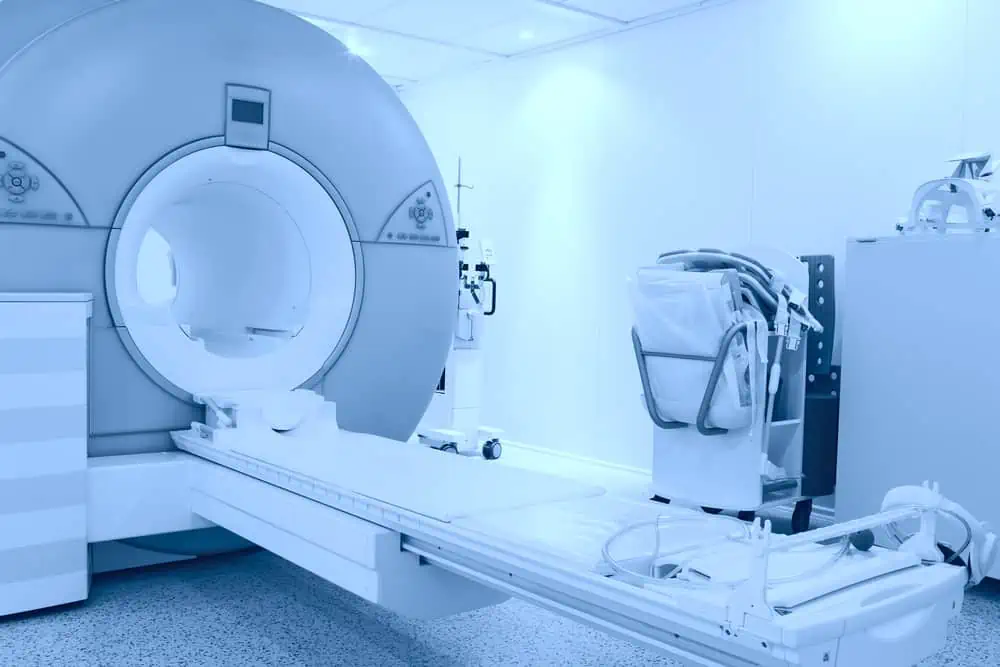It’s probably safe to say most people have heard of physical therapy, but do you really know the benefits of physical therapy or how it can help you?
Physical therapy has advanced a lot since the 1990s and it’s much more than what’s portrayed on TV.
Treatments are continually evolving, and physical therapy has a strong place in health care for many injuries and conditions.
Even if you’ve had a less than stellar physical therapy experience in the past, I encourage you to give this specialty a second look.
Today you’ll get a deeper look into the benefits of physical therapy, when and how to tell if you need it, and valuable insider secrets to help you get the most out of your rehab.
Does physical therapy work? Let’s find out.
- What is physical therapy?
- Benefits of physical therapy
- Types of physical therapy
- What education does a physical therapist have?
- Do I need to be injured to get physical therapy
- Does physical therapy work?
- How do I know if I need physical therapy?
- Do I need a prescription to get physical therapy?
- Additional resources
- What’s next?
I remember being at the hospital having a medical test done. A polite young tech was assisting and, in an attempt to make conversation, asked me what I did.
I replied, “I’m a physical therapist.”
His next question surprised me.
He genuinely asked, “Oh, what’s that?”
After an awkward pause and a perplexed look on my face, I replied, “I help people recover from injuries.” (Which of course is only one portion of physical therapy.)
“Cool.” He said.
I was shocked that someone who worked in a hospital, where they have physical therapy, didn’t know what it was!
So I thought if he didn’t know how many others don’t?
So let’s take a deeper look!
What is physical therapy?
Physical therapy is care provided by a medical professional (licensed physical therapist) to improve pain, strength, and mobility, to help people move better and enjoy their lives.
According to the American Physical Therapy Association, physical therapists are movement experts, improving quality of life via prescribed therapeutic exercise, hands-on care, and patient education.
Physiotherapy and physiotherapist are common terms used mostly outside of the United States, but mean the same thing as physical therapy/physical therapist.
What is physical therapy NOT?
- Massage therapy
- Only passive treatments such as hot packs, electrical stimulation, ultrasound, and massage (Although these may be included from time to time, it’s not the “meat and potatoes” of treatment.)
- A personal training session
- Magic! – Physical therapy requires a positive mindset and some good faith effort to see maximal results.
To learn more about the differences between physical therapy and massage therapy, read this.

Benefits of physical therapy
Depending on the reason for seeking physical therapy, benefits may include:
- Pain relief
- Improved muscle strength
- Improved mobility
- Improved flexibility
- Improved function
- Improved balance
- Avoid surgery
All of these benefits combined add up to one important thing – improved quality of life.
Related: How to Prepare for Your First Physical Therapy Appointment + grab a free checklist here!
Types of physical therapy
Most people are familiar with physical therapy at an outpatient clinic.
Physical therapy is not just one thing, it’s a broad specialty that can help many conditions. Below are some specific niches and examples.
Each physical therapy specialty provides a unique approach to rehabilitation.
Orthopedic physical therapy
Orthopedic physical therapy focuses on the musculoskeletal system including bones, joints, muscles, and other soft tissue structures. Some common injuries include:
- Tendonitis
- Sprains
- Strains
- Neck pain, back pain, knee pain, shoulder pain
- Fractures
- Post-surgical rehabilitation (e.g.: joint replacement, rotator cuff repair, ACL reconstruction)
- Postural, ergonomic, and movement assessments
Neurologic physical therapy
Physical therapists focusing on neurological disorders treat conditions such as:
- Spinal cord injuries
- Parkinson’s Disease
- Traumatic Brain Injury
- Stroke
Pediatric physical therapy
Pediatric physical therapists work with babies and children. Some common conditions treated are:
- Torticollis
- Developmental delay
- Cerebral palsy
Hospital-based physical therapy
Physical therapy provided during a stay at a hospital or inpatient rehabilitation facility:
- Post-surgical
- Total joint replacements
- Heart Attack
- Stroke
- General deconditioning due to an illness and hospital stay
Vestibular rehabilitation
Vestibular rehab deals with dysfunction of the inner ear (vestibular system).
This is typically provided at an outpatient facility by a physical therapist with additional training in treating dizziness.
Vertigo (BBPV) is one of the most common reasons to seek vestibular rehab.
Concussion rehabilitation
Concussion treatment is newer to physical therapy.
It’s also typically provided in an outpatient facility by a physical therapist with additional training in concussion management and rehabilitation.
This type of rehabilitation can help to resolve lingering symptoms following a concussion such as headache, dizziness, and decreased function.
Women’s health/pelvic health
Physical therapists trained in women’s health focus on treatment for issues relating to:
- Pregnancy & Post-Partum
- Incontinence
- Pelvic pain/pelvic floor disorders
These types of issues can be difficult to talk about, so it’s important for you to know that there is help!
Sports physical therapy
Sports rehabilitation (sometimes referred to as sports medicine) is aimed at the athletic population and will include additional sport-specific strengthening exercises and agility training to restore athletic performance.
Cardiopulmonary rehabilitation
Cardiopulmonary physical therapy works with patients diagnosed with cardiac or pulmonary diseases such as:
- Heart attack
- Post cardiac surgery
- COPD and other lung disease
Cardiopulmonary physical therapy is provided in both an inpatient and outpatient facility.
Cancer/oncology rehabilitation
The goal of cancer rehabilitation is to reduce fatigue and restore function during and after cancer treatment.
Hand therapy
For complex injuries or surgeries of wrist and hand, you may need to see a Certified Hand Therapist (CHT).
Both a physical therapist and occupational therapist can become certified in this specialty.
Read this article to learn more about the differences between Physical Therapy and Occupational Therapy.
Home care physical therapy
Home care physical therapy has initially been provided to those unable to leave their house to attend outpatient sessions.
Home care is now also turning into a come-to-you option for convenience in the form of mobile-PT.
Aquatic physical therapy
Aquatic physical therapy is performing cardiovascular and strength training exercises in a pool.
You can read more about the benefits of aquatic exercise here.

What education does a physical therapist have?
Graduates from physical therapy schools in the United States (since the early 2000s) have a Doctorate in Physical Therapy.
Before this, the degree was a Masters in Physical Therapy. When the profession first started, it was a Bachelor’s Degree.
Should I only see a DPT?
Of course not, while a doctorate is a prestigious degree, there isn’t a substitute for 20+ years of clinical experience.
Do I need to be injured to get physical therapy
You may be surprised to know that you don’t have to get hurt to have physical therapy.
Physical therapists can be an excellent resource for those starting with exercise to determine a safe exercise program.
Physical therapists are also skilled at providing postural and movement assessments and can give you valuable injury prevention advice.
A physical therapist is also an excellent resource for education about your condition.
Does physical therapy work?
That’s a pretty broad question. If you ask around, you’ll likely get a range of responses. It depends on a number of factors including why you’re seeking physical therapy in the first place.
Like most things, you get out what you put into it.
Mindset is an important component of rehabilitation. If you’re determined that physical therapy doesn’t work, it probably won’t.
Physical therapy isn’t something you receive. It’s something you’re an integral part of. Most success stories come from those who take an active role in their rehab process.
Consistency with your program over time is the best way to see results. Below are some tips to get the most out of your physical therapy.
What does taking an active role in your care look like?
- Working with your doctor and physical therapist as part of a team.
- Taking the time to learn about your injury/condition.
- Having specific goals to help your therapist design a program tailored to you.
- Committing to attending your sessions, staying present in the moment, and doing your prescribed home program.
- Manage expectations – speak with your physical therapist about realistic time frames to reach goals to avoid discouragement.
- Problem-solving with your therapist, (if something isn’t working, speak up.)
- Listening to your body to avoid taking one step forward and two steps back.
How do I know if I need physical therapy?
Physical therapy isn’t always recommended, leading people not to understand that it may be an option. Ask your doctor if physical therapy is an option for you.
No one medical specialty operates in a vacuum. The best care comes from a comprehensive treatment approach.
You can also call your local physical therapy office and ask if they provide treatment for whatever you’re looking for.
Do I need a prescription to get physical therapy?
It depends.
Many states now have direct access to physical therapy, allowing you to go directly to a physical therapist.
You may need to follow up with your doctor within 30 days (varies by state) to continue PT, but this allows you to access rehab services faster.
It may also depend on the particulars of your insurance plan.
Call your local PT office for information specific to your area.
Additional resources
Here are some resources to learn more about prevention, injuries, and conditions to gain more understanding and have productive conversations with your healthcare providers.
Obligatory PSA – the internet is never a substitute for seeking medical care.
Choose PT by the American Physical Therapy Association (APTA) is a website for the public that has information about physical therapy, symptoms and conditions, and other physical activity information
The Physical Activity Guidelines for Americans outlines the health benefits for physical activity, including goals to strive for. It includes guidelines for teens, adults, older adults, and special populations.
American Heart Association is a comprehensive resource for everything heart, health, and fitness.
National Institutes for Health (NIH) is a resource for all things health-related. Part of the Department of Health & Human Services, the NIH is the largest biomedical research agency in the world.
Centers for Disease Control and Prevention (CDC): provides information on diseases and conditions, healthy living, health when traveling, and more.
Physical Activity Readiness Questionnaire (PARQ+) is a physical activity readiness questionnaire. If you haven’t been active for a while, the PARQ+ is a list of health questions. Use this to identify issues to discuss with your doctor and get parameters to keep you safe with physical activity.
What’s next?
Physical therapy is an essential piece of maintaining healthy movement throughout your life. Contact your local physical therapy office to determine if physical therapy is right for you.
Don’t forget these tips to get the most out of physical therapy. Make sure you save and share this article!
Head over to How to Prepare for Your First Physical Therapy Appointment next!
featured image source: Depositphotos.com








Great post. You have explained it so well. Physical therapy can be so helpful.
As a competitive athlete, physical therapy saved my life. I had a wicked bad back, and it kept me playing. It’s so important!